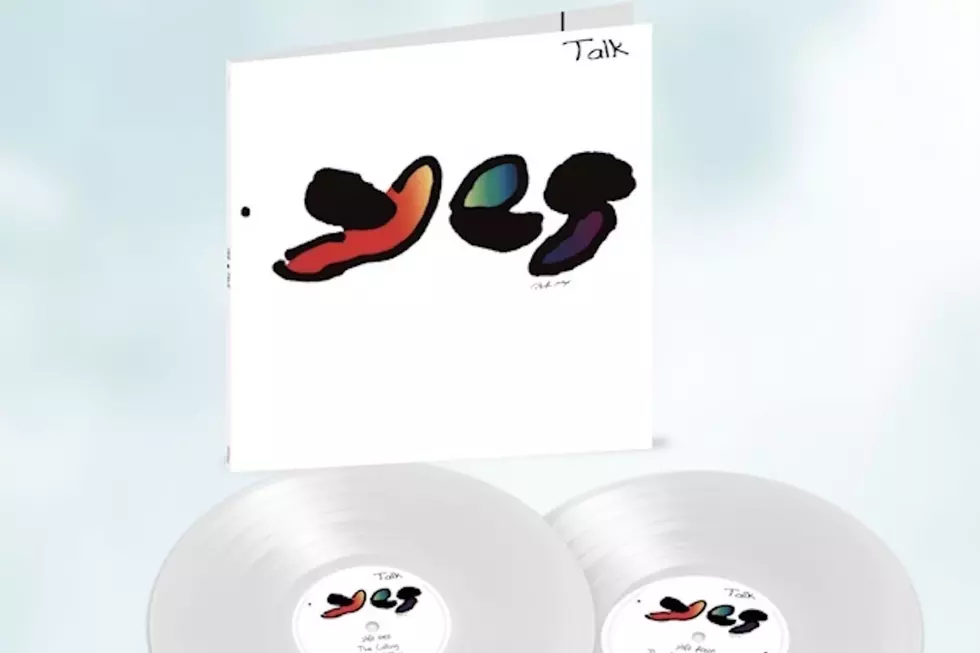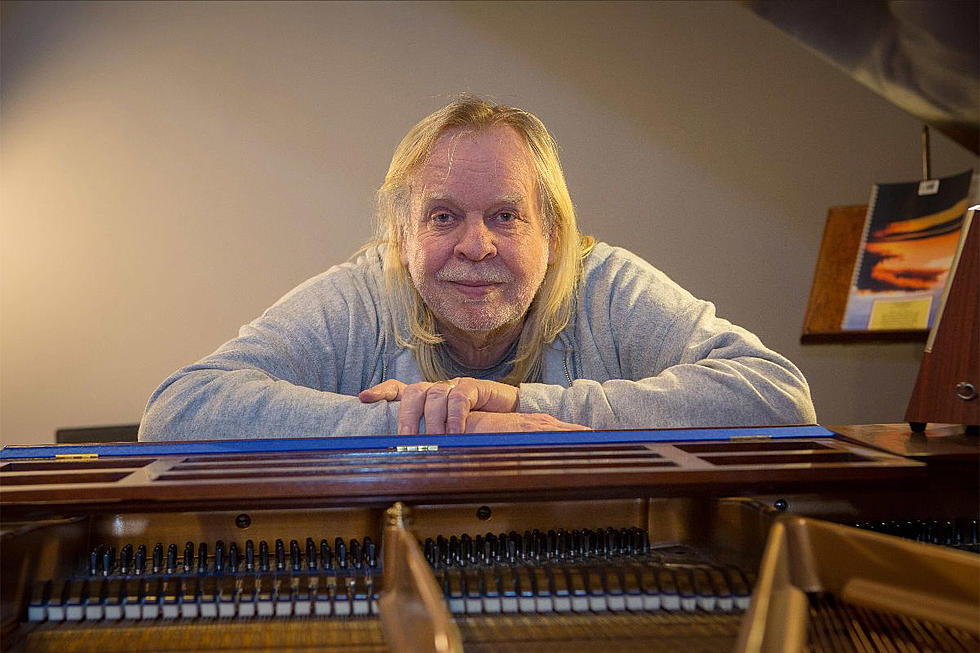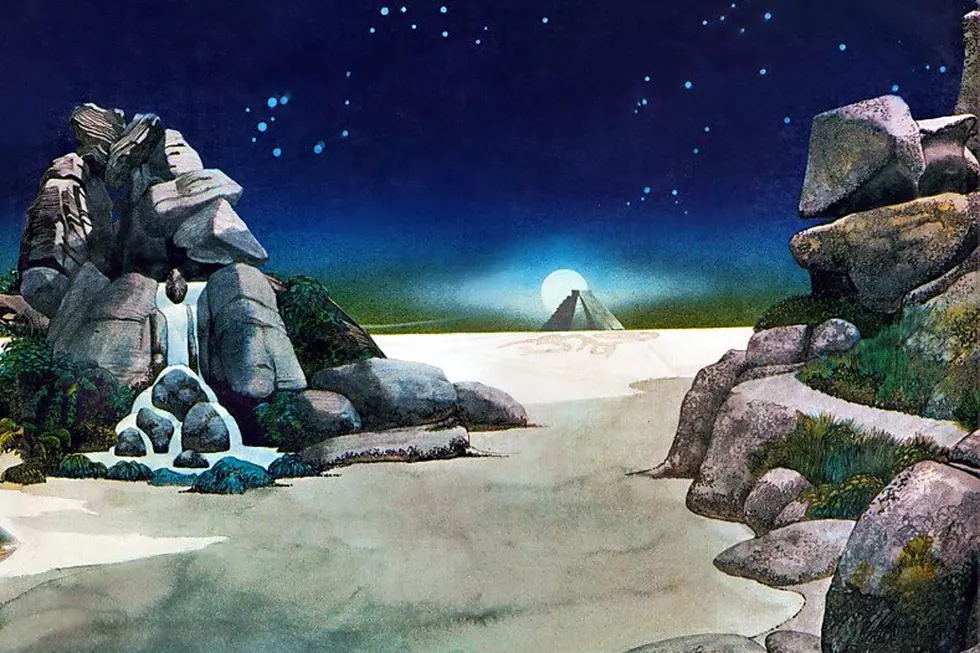
How Yes Summed Up a Divisive Era With Live ‘Yesshows’
Yes' first live LP, Yessongs, was bound to be a classic: That 1973 triple-LP was roughly the size of a Labrador retriever, emblazoned with a hypnotic Roger Dean cover and comprised of material from double-header prog-rock behemoths Fragile and Close to the Edge.
In any superficial comparison, 1980's Yesshows couldn't possibly stack up: With its awkward snow scene cover and track list spanning critically panned albums like Tales From Topographic Oceans and Tormato, it hardly screams "essential purchase."
But Yesshows, released on Nov. 24, 1980, is just as essential as any of the band's late-'70s albums, with songs that often improve upon their studio counterparts.
The live version of "Parallels," for instance, is far superior to the muddled Going for the One take, benefiting from a more forceful mix that offers clarity to Alan White's drums and Rick Wakeman's organ. "The Gates of Delirium," the jazz-prog Relayer opus, feels more intimate in its live setting, with an immediacy to Chris Squire's melodic bass during the "Soon" section.
The oft-panned Tormato single "Don't Kill the Whale" sounds re-energized onstage – not a difficult feat, since that whole LP sounds like it was recorded in a series of broom closets and fish tanks. The track ends with a loose transitional groove, showcasing White's funk drumming. (Only downside to "Whale": Steve Howe's electric guitar remains weirdly out-of-tune and sloppy for some reason.)
Yesshows doesn't include any signature Yes songs – so no "And You and I," no "Roundabout," no "Close to the Edge." The band had already checked those boxes on Yessongs. But that ends up working in their favor: Die-hard fans were the ones buying the LP, and they were the only ones who would crave obscure cuts like "Delirium" and the exploratory, two-part Topographic Oceans adventure "Ritual/Nous Sommes Du Solieil."
Listen to Yes' Live 'Going for the One'
Unfortunately, not all of the obscure tracks hold up under stage scrutiny. Where the polished studio version of "Ritual" reveals its indulgent charms with repeated listens, this take drags and drags, with the band awkwardly burrowing into space-age noodling and percussion orgies – often sounding like five bands playing five different songs at once. "Time and a Word" finds Howe and Wakeman attempting to out-showboat each other, shoehorning ornamental flourishes into a simply strummed psych-folk reverie.
Yesshows was already a nostalgia item when it hit shelves: The recordings were taken from shows in 1976-78 – featuring two former keyboardists, Wakeman and Relayer's Patrick Moraz. The timing is curious: It arrived three months after the band's 10th album, the divisive Drama, which featured a pair of controversial new recruits, the Buggles' Trevor Horn and Geoff Downes. (Horn had the impossible task of replacing the departed Jon Anderson, and was reportedly booed at several shows during his first and only Yes tour.)
Given its place in the Yes timeline, Yesshows was likely a bittersweet listening experience for most fans – reminding of the band's erratic majesty in the mid-to-late '70s, with Anderson at the helm. Today, it's a messy but magnificent glimpse at a sadly overlooked era in the band's wild timeline.
Forgotten First Albums: Rock's 61 Most Overshadowed Debuts
Steve Howe Released One of Rock’s Most Hated Albums
More From Ultimate Classic Rock









